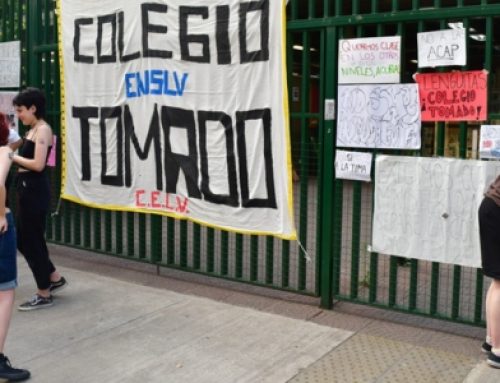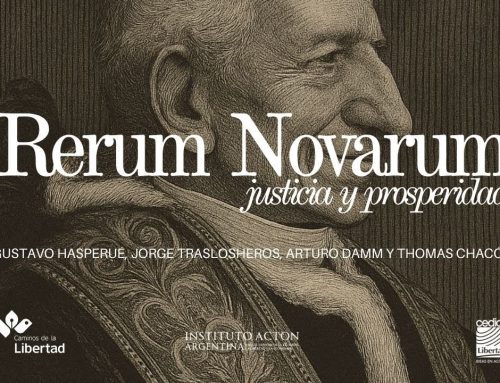por Kishore Jayabalan
15 de febrero de 2015
Fuente: Istituto Acton (Italia)
Dear Friends of Istituto Acton,
The first non-European pope in modern times had some strong words for modern Europe. In his November 25 speeches to the European Parliament and the Council of Europe, Pope Francis noted the continent seemed “elderly and haggard, feeling less and less a protagonist in a world which frequently regards it with aloofness, mistrust and even, at times, suspicion,” “a grandmother, no longer fertile and vibrant,” and “tired and pessimistic, which feels besieged by events and winds of change coming from other continents.” Like his predecessors, he called upon Europe to return to its Christian roots and regain its transcendent sense of human dignity.
No one can disagree with the pope’s diagnosis, which comes straight out of Catholic social doctrine and not from any political ideology, as he noted on the plane back to Rome when he was impertinently asked if he was a Social Democrat. It made the pope laugh but journalists need to be reminded of such things on regular occasions. What was perhaps more surprising and less noted was Francis’s critique of the bureaucratic mindset that afflicts Europe.
A few days prior to his Strasbourg trip, in a message to the Festival of Catholic Social Doctrine in Verona, Francis said today’s system “tends to homogenize everything” and that we need more space for “the economy, entrepreneurs, enterprise and cooperation.” In Strasbourg, he remarked that bureaucratic technicalities have robbed Europe of its great ideals. Call me pessimistic, but I doubt many Catholic social scientists, moral theologians or European parliamentarians were paying much attention to these descriptions of the welfare state, which certainly ring true to those of us who live here.
Or that his words will have much effect on Europeans in general, even if everyone knows what he says is true. Why is this the case? Francis has often criticized individualism and the “globalization of indifference” for today’s social problems while recalling the dignity of the human person, human rights and duties and intergenerational solidarity. To some degree, there are all liberal ideas that have some basis in Christian morality and one is forced to confront the differences between them.
No one has been more perceptive than Friedrich Nietzsche in making this comparison. His critiques of Christianity (“the death of God”), the cult of work (“the characteristic vice of the New World”), and marriage ( as Werner Dannhauser put it, “a sharing of bad moods and bad air”) perfectly describe the way many Europeans think and live. They also remind of us of the way out through a recovery of the virtuous life. Harvey Mansfield put it well in an interview with The European: “He caused liberals to lose faith in any principles, so I don’t think that we should go back to Nietzsche. If we want more virtue, we need a belief that virtues exist and make you happier than you would otherwise be, and that are attainable in practice.”
Rather than wallow miserably in existential angst, today’s Europeans need to act, and by doing so come to believe that they can act, in three ways. Forgive the imperative voice, but commands are the most direct way of speaking about the virtues:
Get married and start a family. I am guilty of not following my own advice here, at least for the time being, but it’s not a conceptual problem. The recent Humanum conference at the Vatican made it clear: there is no future without men and women getting together to marry and have children.
Get a job. Pope Francis has spoken on several occasions about the hopelessness of youth unemployment and the dignity of work. Europe has made non-work pay through its generous welfare benefits, however.
Get to church. The European crisis of belief is perhaps the most serious of all its many crises. It won’t be easy to convince Europeans that Christ is the answer to their problems, but they should at least take the first step by acting as if He may be and let Him do the rest.
I know I sound like a cantankerous dad and that there are serious objections/excuses as to why Europeans don’t marry, work or worship, but it seems to me that immigrants come to Europe to do these very basic things. It’s the lack of opportunities that drives them from places like the Philippines, Nigeria and Bangladesh, opportunities that Europeans take for granted.
The title of the above-cited Mansfield interview is “Too Much Government, and Not Enough Politics,” which probably sounds paradoxical to most people, including the pope. Isn’t government the same as politics and made up of politicians? Politics is a dirty word because it means being partisan and ideologically narrow-minded. And it’s not as if European politicians have proven themselves capable leaders in any way; as Ronald Reagan put it several decades ago, they are often the problem, not the solution.
But politics in the sense of greater self-governance, more exercise of freedom and responsibility for oneself, one’s family and one’s society, is a very good, indeed necessary, thing. In order to get its house in order, the house needs some kind of architecture, i.e. politics in the Aristotelean sense. If Pope Francis has an Aristotelean view of economics, perhaps he can also promote one of politics and virtue as well. This would be a real recovery of European greatness.
Kishore Jayabalan
Director




Deja tu comentario